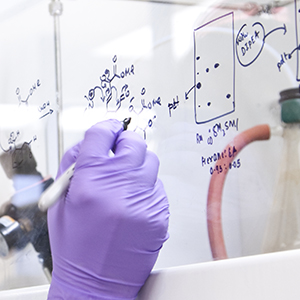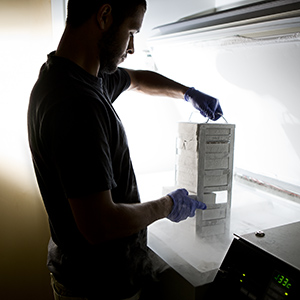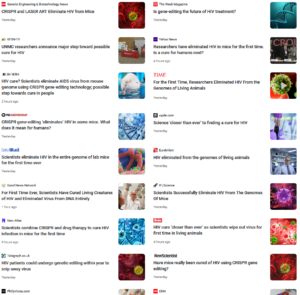
by Charlie Litton, UNeMed | July 3, 2019
It’s easy to get excited when one of our researchers scores interesting results from an experiment. When those results then lead to a prestigious publication, it gets even more tempting to start shouting from the rooftops.
Still, we try to temper our enthusiasm as best we can because a lot of the technologies we see are still years away from reaching the clinic.
Then, yesterday, Howard Gendelman, M.D., stood before news cameras and told those gathered about his most recent publication in Nature Communications.
He knocked everyone’s socks off.
Along with his team and partners at Temple University, Dr. Gendelmen showed with his LASER ART technology that curing HIV might not just be possible, but perhaps even likely. That’s a thought that felt more like a fantasy two days ago.
As you might imagine, the news blew up across the internet and airwaves. Here’s a smattering of some of the news outlets that picked up the story. The original UNMC and Temple joint press release can be viewed here.
- “‘A cure of HIV is possible’: UNMC, Temple researchers eliminate virus in humanized mice,” Omaha World-Herald
- “Researchers say they’re closer to finding cure for HIV after using CRISPR technology to eliminate disease in live mice for the first time,” CNBC
- “Is gene-editing the future of HIV treatment?,” The Week
- “Scientists eliminate HIV in the entire genome of lab mice for the first time ever: Breakthrough paves the way to a human cure – with clinical trials set to start next year,” Daily Mail
- “CRISPR and LASER ART Eliminate HIV from Mice,” GEN
- “Have mice really been cured of HIV using CRISPR gene editing?,” NewScientist
- “Scientists Entirely Remove HIV From Mice, With Hope For 100% Human Cure By Next Year,” India Times
- “CRISPR gene-editing ‘eliminates’ HIV in some mice. What does it mean for humans?,” PBS NewsHour
- “For the First Time, Researchers Eliminated HIV From the Genomes of Living Animals,” Time
- “Researchers have eliminated HIV in mice for the first time. Is a cure for humans next?,” USA Today/Yahoo
- “Researchers eliminated HIV from the DNA of infected mice. It’s the first step toward a cure for humans, they say,” CNN
- “HIV patients could undergo genetic editing within year to snip away virus ,” London Telegraph
- “In a first, scientists eliminate HIV from an animal’s genome,” CBS News

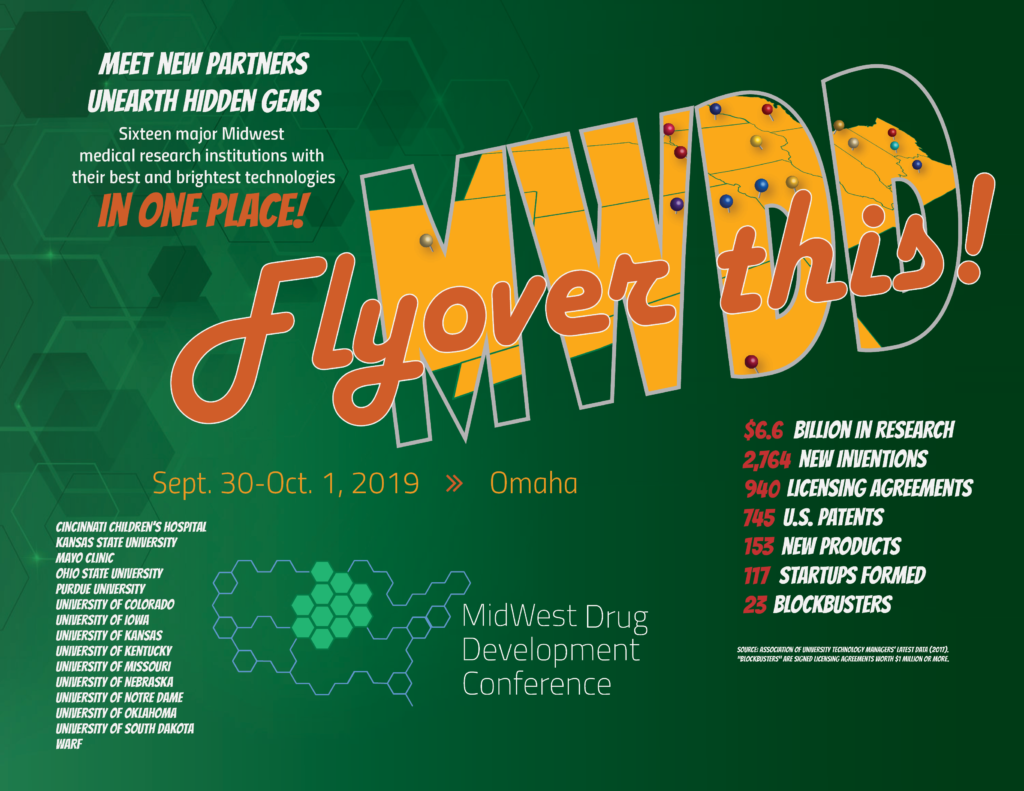

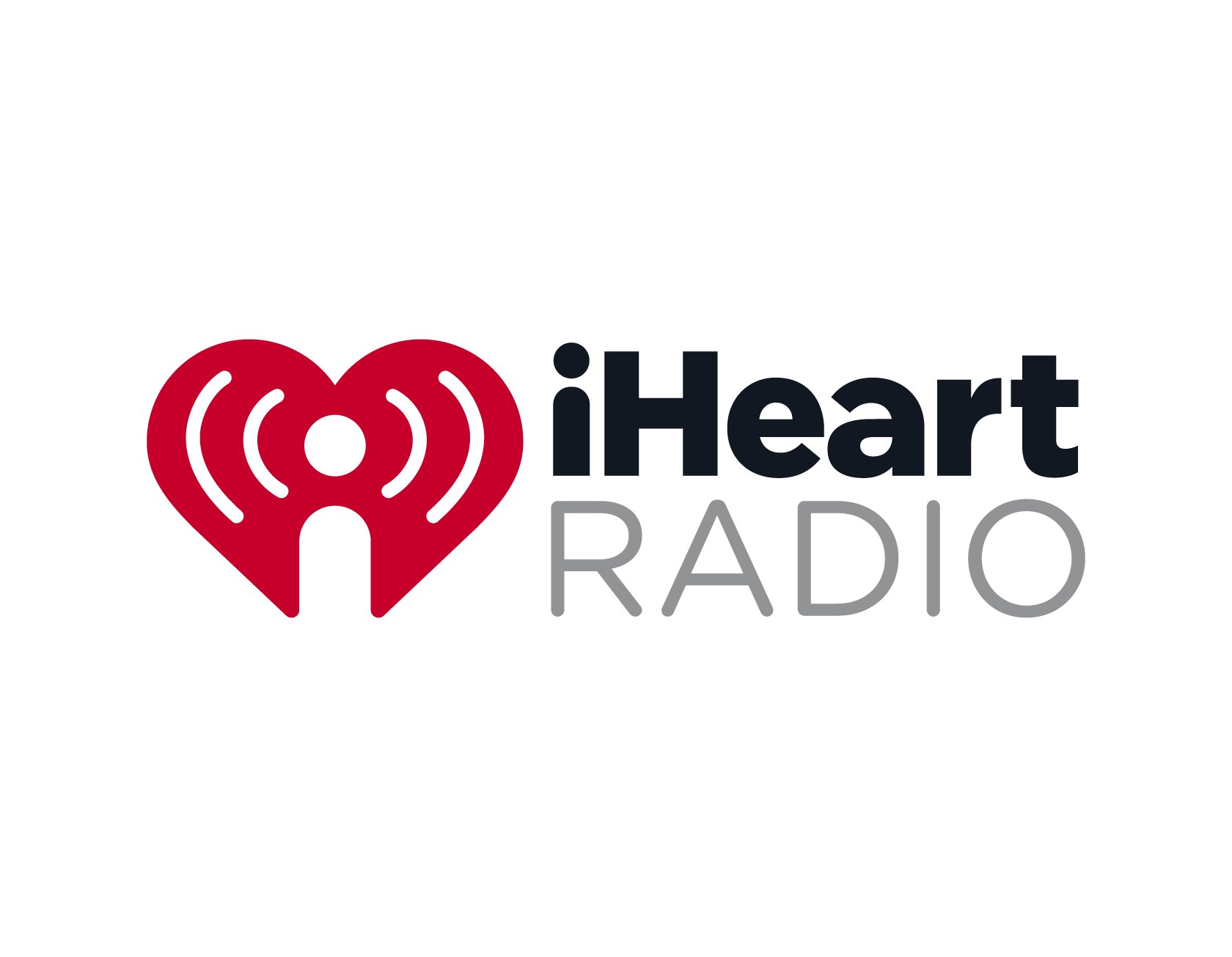


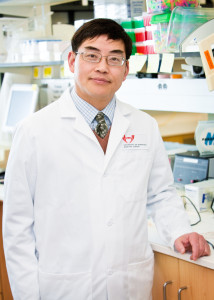
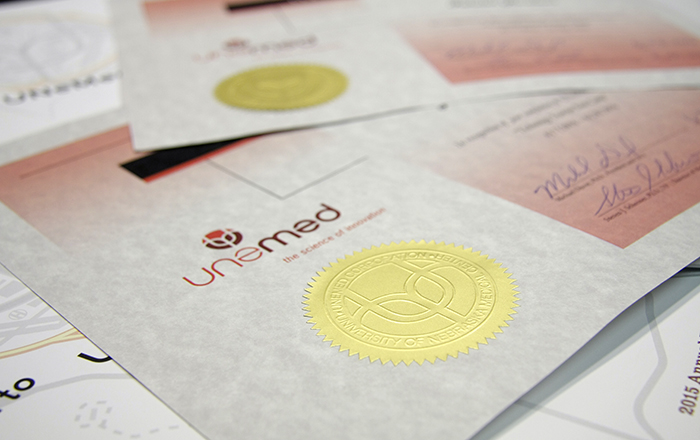
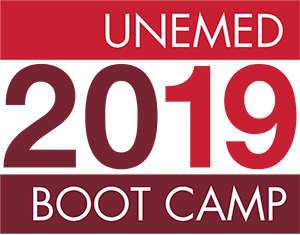 OMAHA, Neb. (April 29, 2019)—The next Technology Transfer Boot Camp is scheduled for Aug. 12-16, UNeMed announced today.
OMAHA, Neb. (April 29, 2019)—The next Technology Transfer Boot Camp is scheduled for Aug. 12-16, UNeMed announced today.

